Russia-Ukraine war live updates: Russia uses hypersonic missiles
A Russian strike may be the deadliest single attack of the war as Moscow uses its newest hypersonic missiles for the first time.
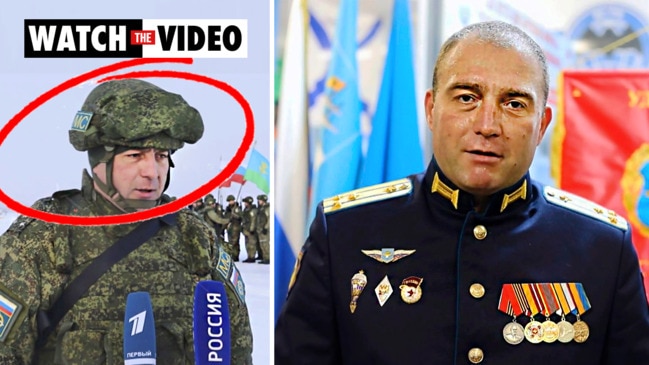
A Russian missile strike on a Ukrainian army barracks might have killed up to 200 soldiers as they slept in the most deadliest single attack of the war, now in its fourth week.
The military barracks facility in southern city of Mykolaiv was fully destroyed after being hit by several rockets.
Emergency responders were still digging through the rubble on Saturday and so far more than 50 bodies had been recovered but officials expect there could be up to 200 who were known to be sleeping in their bunks at the time of the attack.
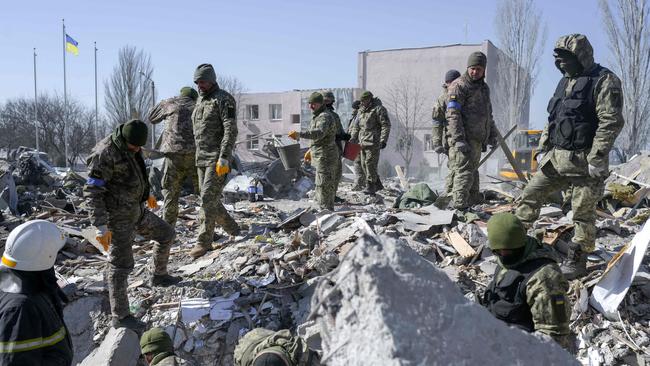
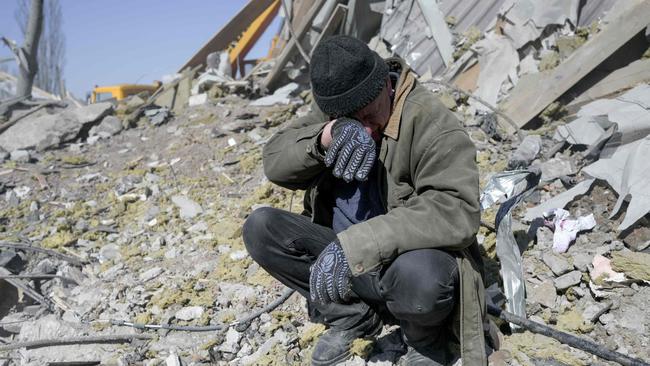
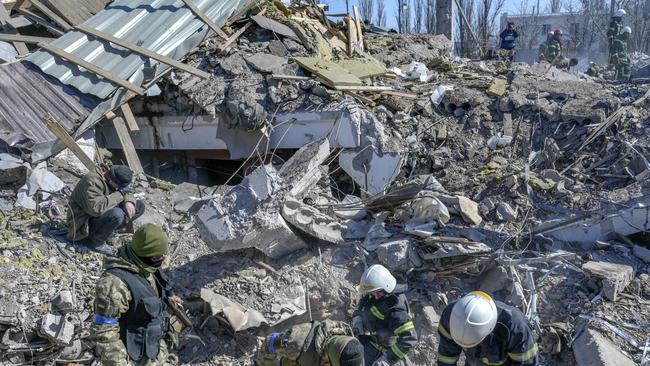
“Yesterday, ‘orcs’ hit our sleeping soldiers with a rocket in a cowardly manner,” head of the regional administration Vitaly Kim, using the Ukrainian nickname for Russian forces.
“A rescue operation is underway.”
Ukraine has used missile defence systems to block incoming ordinance with some success, prompting Russia to confirm on Saturday it was now using hypersonic missiles that are virtually unstoppable at 10 times the speed of sound.
The Russian military made the revelation that for the first time in combat the hypersonic Kinzhal (dagger) missile, with a range of 2000km, was used to destroy an underground munitions warehouse in Delyatyn, in the Ivano Frankivsk district south of Lviv. It had previously only been used in test firings in Syria.
Russia has never before admitted using the high-precision weapon in combat, and state news agency RIA Novosti said it was the first use of the Kinzhal hypersonic weapons during the conflict in pro-Western Ukraine.
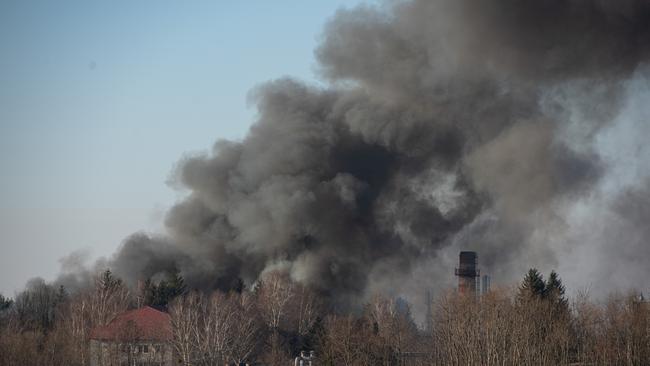
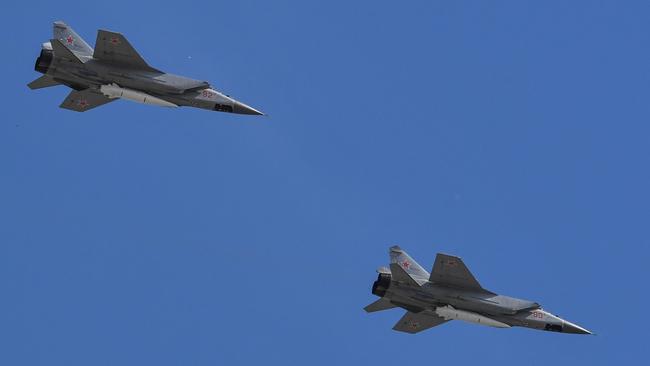
“The Kinzhal aviation missile system with hypersonic aeroballistic missiles destroyed a large underground warehouse containing missiles and aviation ammunition in the village of Deliatyn in the Ivano-Frankivsk region”, the Russian defence ministry said Saturday.
It’s use by the Mig-31 fighter could be a game changer for the Russian advance which has been bogged down. Analysts have already tipped Russian forces starting to get the upper hand as they truck in more ammunition, artillery and troops. Eight cities were shelled on Saturday, killing an unspecified number of civilians.
But Britain’s Prime Minister Boris Johnson said it was clear President Vladimir Putin was in “total panic” and only invaded because he feared a pro-democracy movement was rising in Moscow.
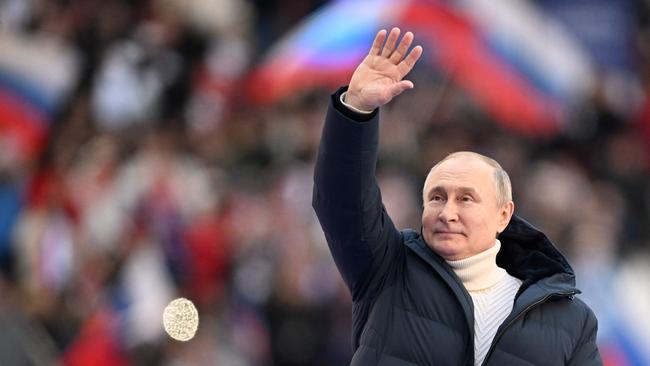
He said a Russian victory in Ukraine would lead to other nations being topped by Putin whose agenda was broad.
“He was frightened of Ukraine because in Ukraine they have a free press and in Ukraine they have free elections,” he said of Russian February 24 invasion.
“It is precisely because Ukraine and Russia have been so historically close that he has been terrified of the effect of that Ukrainian model on him and on Russia.
“He has been in a total panic about a so-called colour revolution in Moscow itself and that is why he is trying so brutally to snuff out the flame of freedom in Ukraine and that’s why it is so vital that he fails.”
Meanwhile, foreign fighters arriving in Ukraine have been ordered to stop using their mobile phones or swap SIMs with evidence foreign numbers are being tracked and targeted by Russian missiles.
The strike of the foreign legion’s base in Yavoriv close to the Polish border was believed to have been sparked by up to 14 mobiles using the British +44 code prior to the attack.
It is believed some foreign fighters were killed including three British veterans.
The Kremlin had claimed more than 100 foreign fighters were killed in that one strike, although Ukraine forces denied this.
‘CHILDREN ARE DYING’: UKRAINE LEADER’S PLEA
Ukrainian President Volodymyr Zelenskyy has blasted firms including Nestle for carrying on business as usual with Russia “even though our children are dying”, in a live address to a Swiss rally.
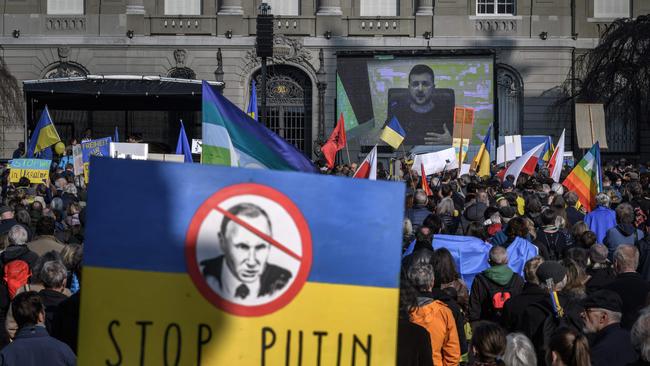
Speaking to a rally outside the Swiss parliament in Bern, Mr Zelenskyy urged Swiss companies to stop doing business in Russia and told the country’s banks to freeze funds belonging to the Kremlin elite.
The thousands of demonstrators gathered in the square in front of the Federal Palace heard Mr Zelenskyy’s nine-minute speech translated in German, though technical problems interrupted the video from Kyiv.
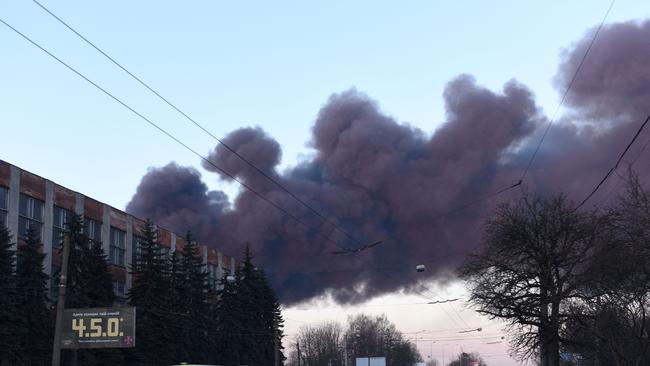
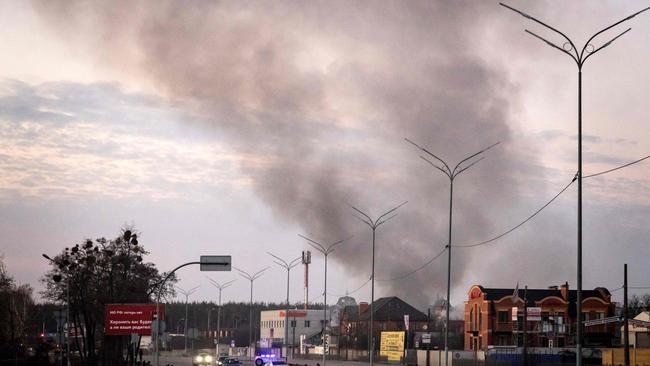
Mr Zelenskyy criticised Swiss companies for continuing to do business in Russia, singling out food giant Nestle.
The company’s slogan is “good food, good life”, he said.“Business works in Russia even though our children are dying and our cities are being destroyed,” and while people in Mariupol were “without food, without water, without electricity, under bombardment”.
It comes after Mr Zelenskyy made a fresh appeal for talks with Moscow on Saturday, while Russia said its soldiers had entered the centre of besieged port city Mariupol.
As bitter fighting between local forces and Russian troops rages across the country more than three weeks into the invasion, the two sides are already holding negotiations remotely.
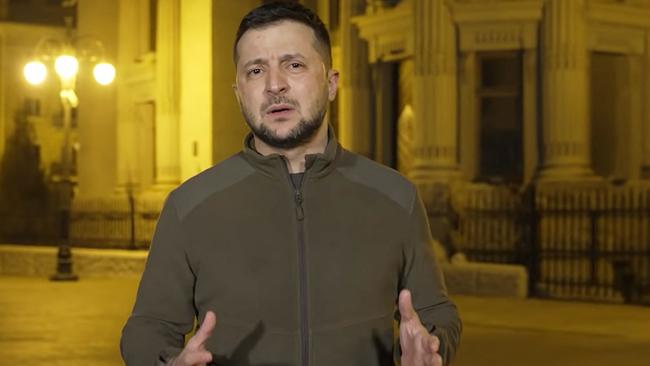
But so far, as in previous rounds, the talks have yielded little progress, with both sides blaming the other, and none have been at the presidential level.
“This is the time to meet, to talk, time for renewing territorial integrity and fairness for Ukraine,” Zelenskyy said in a video posted to Facebook.
“Otherwise, Russia’s losses will be such, that several generations will not recover.” Russia’s offensive remains largely stalled, a US defence official said, with troops about 30 kilometres (20 miles) east of the capital Kyiv and facing heavy resistance.
The official added that Russian forces had made no further progress into the northeastern city of Kharkiv, which they have encircled, and that Ukrainians were also defending the northern city of Chernihiv.
Britain’s defence ministry said Russia was struggling to provide its forward troops “with even basic essentials such as food and fuel” because of Ukrainian attacks on their supply lines.
RUSSIANS IN MARIUPOL
But Russia’s defence ministry said Friday that the army and its separatist allies had made a breakthrough in Mariupol, which has been under Russian shelling for days, and were now inside the city.
“In Mariupol, units of the Donetsk People’s Republic, with the support of the Russian armed forces, are squeezing the encirclement and fighting against nationalists in the city centre,” the ministry said.
The mayor of the city confirmed to the BBC that gunbattles had reached the heart of Mariupol.
On Friday rescuers were still searching for hundreds of people trapped under the wreckage of a bombed theatre there.
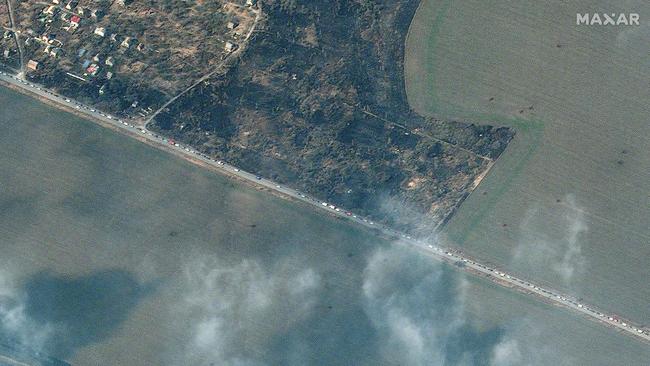
At the time of the attack, Mariupol’s city council said that over 1,000 people were sheltering in the theatre’s basement when it was hit on Wednesday.
On Friday, the council said one person had been badly wounded, but there were no dead, the only casualty tally given so far.
There was still no information about potential fatalities, Zelensky said, but 130 people had been saved so far — some “heavily injured”.
9,000 people had been evacuated from Mariupol, he added.
As Putin’s ground offensive has met with fierce Ukrainian resistance, Moscow has increasingly turned to indiscriminate air and long-range strikes.
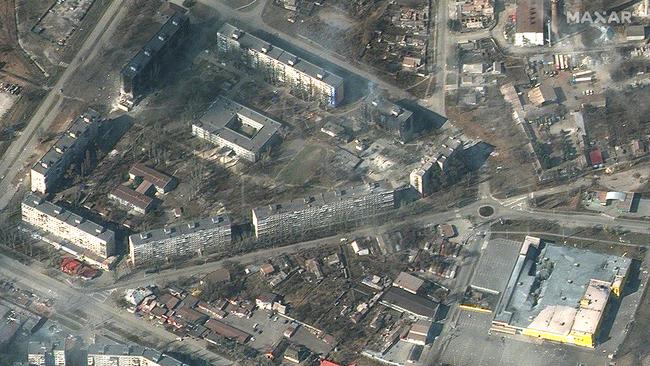
RUSSIA AUTHORISES MILITARY TO SHOOT JOURNALISTS
Russia has reportedly authorised its military to shoot journalists covering the war in Ukraine, claiming they are legitimate targets.
Equally as shocking, that warning came as a confidential memo purportedly circulating about foreign embassies warned their citizens were also now at risk, set to be targeted by Russian assassins even in cities considered safe.
All embassies have upgraded their warnings in the past 24 hours.
The shift to target both media and foreign nationals is against international laws and constitutes war crimes.
Russian military said the press had no business operating in areas they claim are under Russian control and therefore operating against the state.
But the areas they define as theirs are considered by the Ukrainian military to remain contested and or under Ukraine control, muddying the coverage areas.
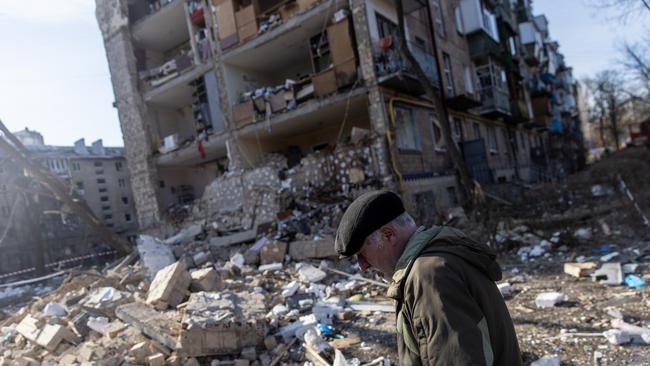
After Russian’s invasion on February 24, the media was told to mark their cars with “press” signs but the order has now been rescinded with media told to not overtly identify themselves unless approached. So far five journalists have been killed, one is missing and dozens have been injured.
In Lviv, in Ukraine’s west, diplomats have specifically been warned all foreigners were now targets with Ukraine intelligence suggesting Russian assassins had been dispatched.
There are hundreds of foreigners, mostly military veterans, who have either come to join international fighting brigades or humanitarian missions or have been contracted by wealthy families to rescue and escort loved ones to safety.
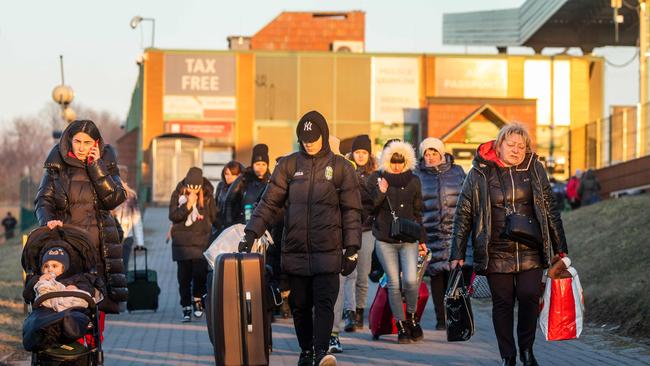
Russia had already declared them as “mercenaries” and legitimate targets on the battlefield but have upped the stakes by now apparently looking to execute them in areas considered safe.
When the military base outside Lviv was struck by cruise missiles last weekend, killing at least 35 and injuring 134 others, many foreign combatants were displaced and are now staying in hotels in the city awaiting new positioning.
Hence suspicions Russian spies and assassins are about.
Yesterday the Australian Department of Foreign Affairs and Trade issued its strongest Level 4 warning with the situation “deteriorating rapidly”.
“Foreigners have been killed and may be targeted, including in areas not directly affected by fighting. Do not travel to Ukraine, there is a real risk to life,” it’s consular advice concludes.
“If you’re in Ukraine, shelter in place until you judge it’s safe to depart. Seek shelter in a hardened structure away from windows.”




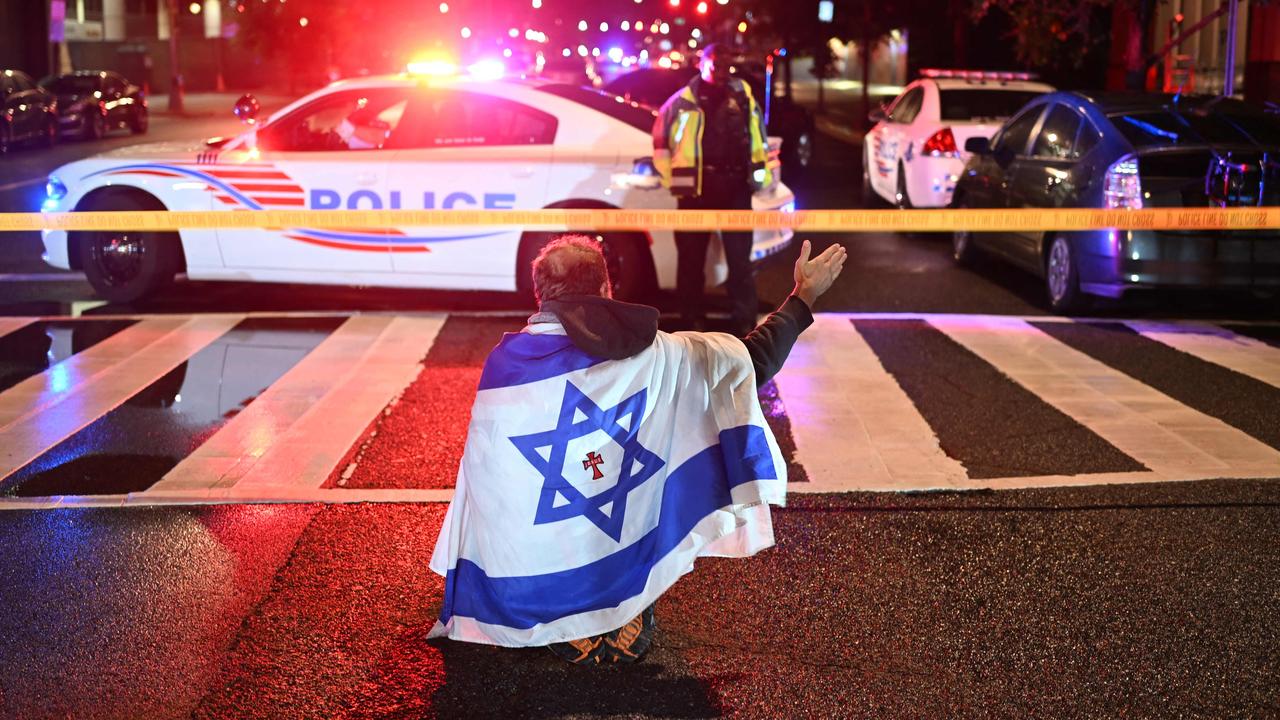
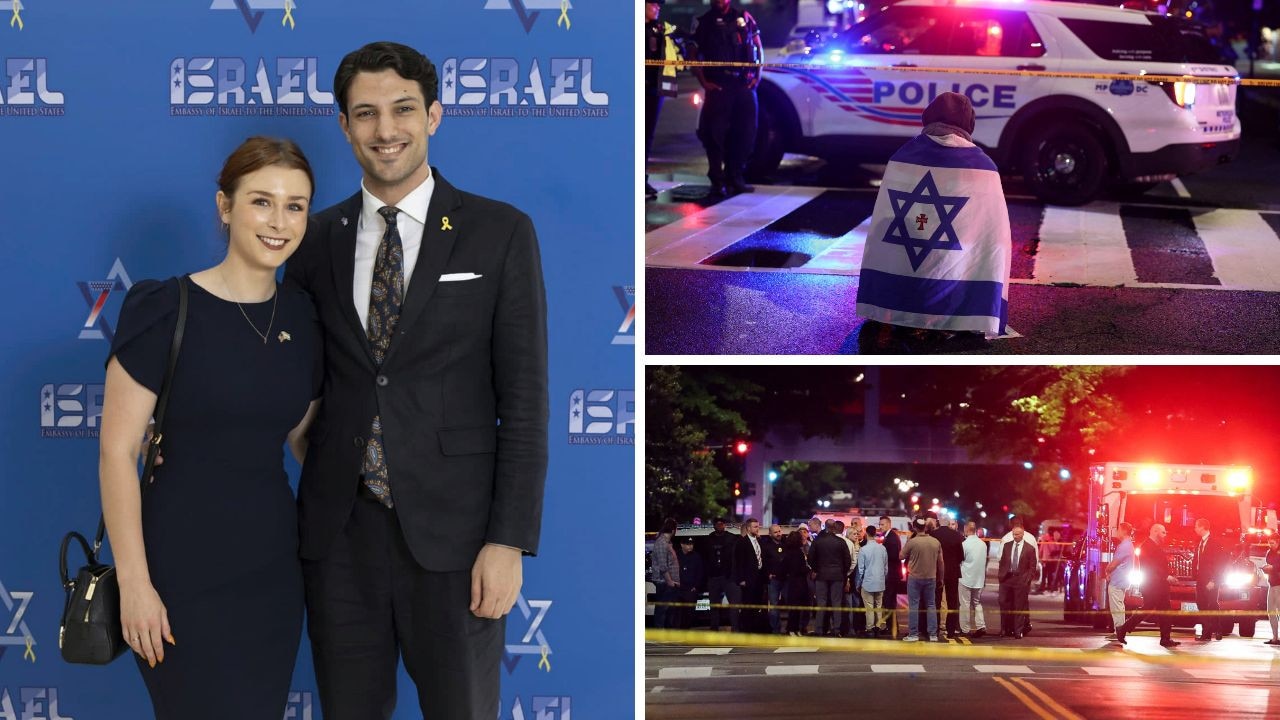
To join the conversation, please log in. Don't have an account? Register
Join the conversation, you are commenting as Logout